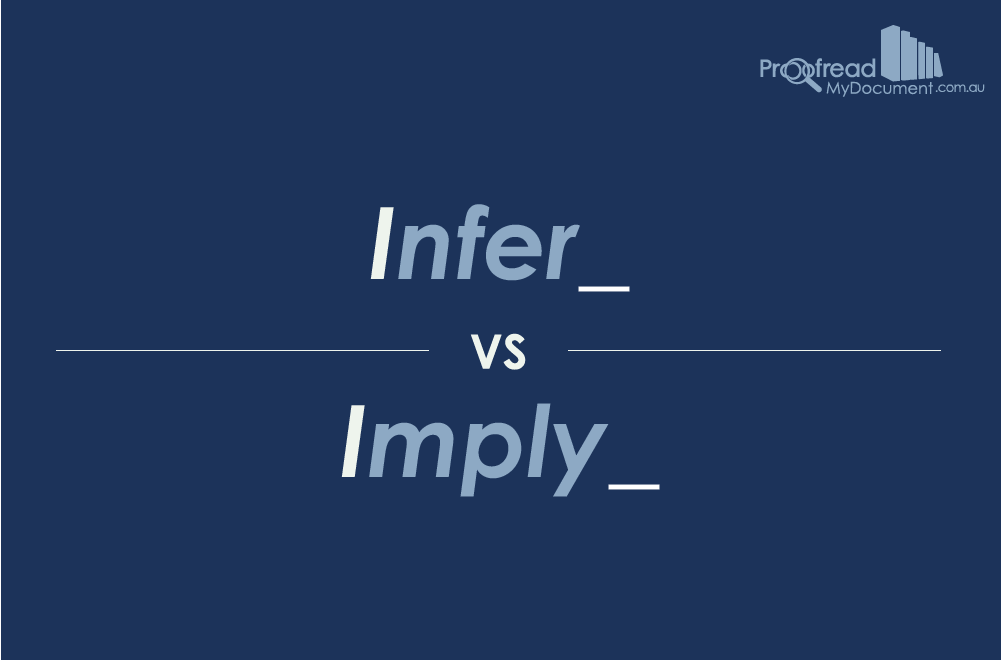The words ‘imply’ and ‘infer’ are basically opposite terms related to speaking and listening: a speaker can ‘imply’ something without stating it directly, whereupon a listener would have to ‘infer’ the meaning of their words.
However, despite being opposites, these words are often confused. Needless to say, this isn’t ideal if you want to communicate your ideas clearly in your written work. To make sure you avoid this common error in the future, simply follow the guidelines below.
Imply (Hint)
The verb ‘imply’ means to hint at something or express it indirectly (something implied is an ‘implication’):
Jim spoke vaguely of being tired, implying that he wanted to go home.
Although she didn’t say it out loud, Tara’s body language implied she was fed up.
Another meaning of ‘imply’ is to suggest that something is a necessary or expected consequence of something else:
The dark clouds implied that it would be another stormy evening.
In both cases, however, the word ‘imply’ refers to the idea of something being suggested or indicated indirectly.
Infer (Deduce)
So how about ‘infer’? Another verb, ‘infer’ means to come to a conclusion deductively (i.e., to identify something as plausible by reasoning from evidence). We call something concluded on this basis an ‘inference’.
Find this useful?
Subscribe to our newsletter and get writing tips from our editors straight to your inbox.
In academic writing, it’s common to see ‘infer’ used to describe reaching a conclusion based upon limited information:
From the data available, I inferred that the experiment was sound.
More generally, we ‘infer’ something when we reach a conclusion based upon evidence or observation, rather than an explicit statement. It’s primarily in this sense that ‘infer’ can be thought of as the opposite of ‘imply’:
Tara never said anything, but I inferred she was annoyed from her body language.
In the above, we see one of the examples used for ‘imply’ turned around; instead of describing how Tara’s body language implied her emotions, we have an observer ‘inferring’ her emotional state.
Imply or Infer?
Hopefully, the definitions above have clarified things. If you’re still confused, it can help to remember the distinction set out in the opening paragraph:
A speaker implies; a listener infers.
This is a simplification (you can imply something without speaking, just as you can infer something based upon non-verbal information). But it does explain the relationship between the two words insofar as ‘implying’ suggests communicating something indirectly, while ‘inferring’ involves reaching a conclusion on the basis of what has been said.



